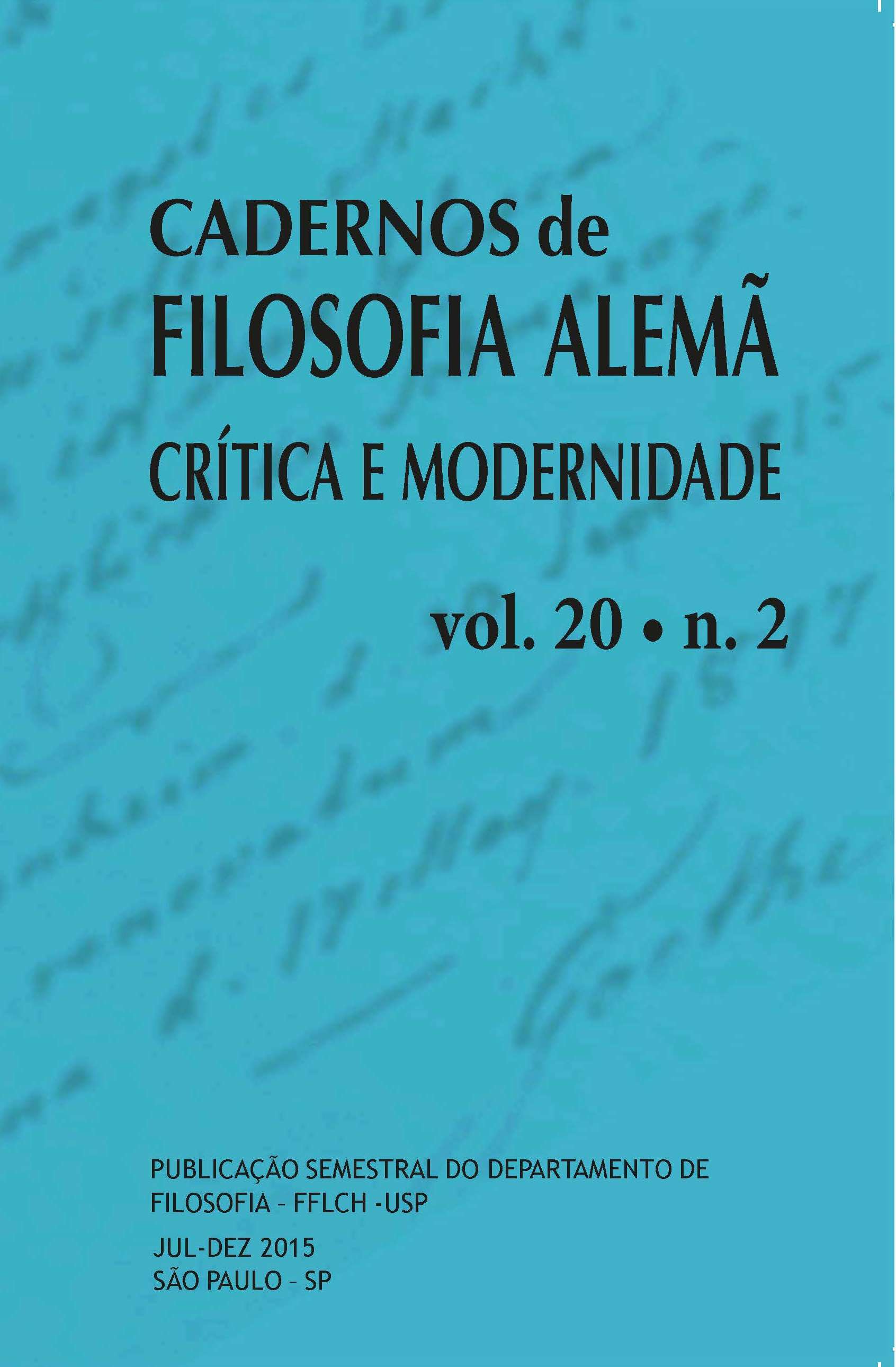Volume I of The History of England and the English constitutional debate: Hume against the idea of fundamental law
DOI:
https://doi.org/10.11606/issn.2318-9800.v20i2p37-65Keywords:
Hume, History of England, fundamental law.Abstract
In The History of England’s first volume, Hume addresses three important topics in English history in terms of how they have been interpreted and mobilized by disputing parties in the English constitutional debate of the seventeenth and eighteenth centuries. By reconstructing Hume’s position regarding these topics (the Saxon constitution, the Norman Conquest and the Magna Carta), I intend to show how Hume refuses the idea of fundamental law that was at the heart of this debate, where upon his own conception of law as a social institution emerges.Downloads
References
BAIER, A. The cautious jealous virtue: Hume on justice. Cambridge/ London: Harvard University Press, 2010.
BRADY, R. An historical treatise of cities and burghs or boroughs. London: Browne, 1711 (re-print Gale ECCO print editions).
BUCKLE, S. Natural Law and the Theory of Property. Grotius to Hume. Oxford: Clarendon Press, 1991.
COKE, E. The second part of the Institutes of the law of England. London: Brooke, 1797 (re-print ULAN press).
GIARRIZZO, G. David Hume politico e storico. Torino: Einaudi, 1962.
GOUGH, J. W. Fundamental Law in the English Constitutional History. Oxford: Oxford University Press, 1955. Tradução francesa: Paris: PUF, 1992.
HAAKONSSEN, K. The science of a legislator: the natural jurisprudence of David Hume and Adam Smith. Cambridge: Cambridge University Press, 1981.
HUME, D. Enquiries concernig the principles of morals. Selby-Bigge (ed.). Oxford: Clarendon Press, 1975.
___________. The History of England, 6 vols. Indianapolis: Liberty Fund, 1983.
___________. Essays Moral, Political and Literary. Miller, E. (ed.). Indianapolis: Liberty Fund, 1985.
___________. A Treatise on Human Nature. Selby-Bigge/ Nidditch (eds). Oxford: Clarendon Press, 1989.
McARTHUR,N. David Hume’s political theory, law, commerce, and the constitution of government. Toronto: University of Toronto Press, 2007.
PIMENTA, P.P. A imaginação crítica, Hume no século das Luzes. Rio de Janeiro: Azougue, 2013.
POCOCK. J. G. A. The ancient constitution and the feudal law. New York: Norton library, 1967.
___________. Barbarism and Religion, II. Cambridge: Cambridge University Press, 1999.
KAMES, H. H. Essays upon several subjects concerning British antiquities. London: M. Cooper, 1749 (Nabu Public Domain Reprints).
___________. Historical Law-tracts. Edinburgh: A. Kincaid, 1761 (The lawbook exchange, Ltd. Union, New Jersey, 2000).
SMITH, R. J. The gothic bequest, medieval institutions in British thought, 1688-1863. Cambridge: Cambridge University Press, 1987.
THOMPSON, F. Magna Carta, its role in the making of the English constitution (1300-1629). Minneapolis: The University of Minnesota Press, 1948.
WALDRON, J. A Dignidade da Legislação. São Paulo: Martins Fontes, 2003.
WEIN, S. David Hume and the empiricist theory of law. Man and Nature, 9, 1990, pp.33-44 (reeditado em Mackinnon, K. Hume and Law, Ashgate, 2012, pp.23-34)
WESTON, C. C. “L’Anglaterre: l’ancienne constitution et le droit commun”, In: Burns, J. H. (org.) Histoire de la pensée politique moderne, 1450-1700. Paris, PUF, 1997.
Downloads
Published
Issue
Section
License
Information and conceptions on the texts are complete responsibility of the authors.
All the articles submitted before July 5th 2018 and those published after July 2021 are licensed under a CC BY-NC-ND license – except those published between the aforementioned dates, which are under the CC BY-NC-SA license. The permission for the translation of the material published under the license CC BY-NC-ND by third parts can be obtained with the consent of the author.
Open access policies - Diadorim
Rules applied before July 5th 2018:
Presenting a submission to our Editorial Board implies granting priority of publication for “Cadernos de filosofia alemã”, as well as transferring the copyright of texts (once published), which will be reproduced only with the manifest authorization of the editors. Authors keep the right to reuse the texts published in future editions of their work, without paying any fees to "Cadernos”. We will not grant the permission to re-edit or translate the texts for third parts without agreement of the author.


